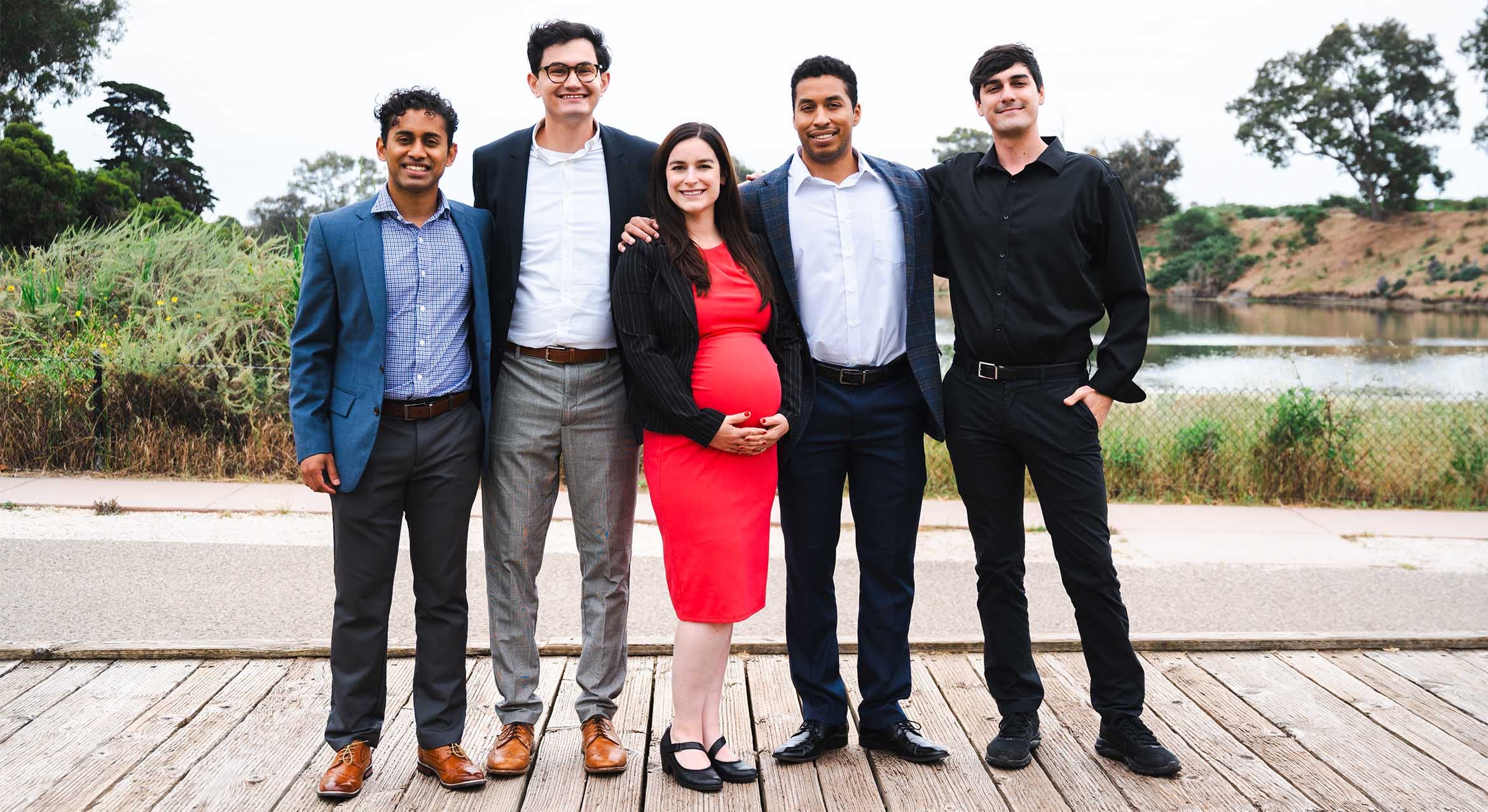American Academy of Arts and Sciences Elects 3 Affiliated with UC Santa Barbara
Two UC Santa Barbara professors – David Awschalom and Michael Goodchild – have been elected fellows of the prestigious American Academy of Arts and Sciences, the academy announced Monday, April 24.
Joining the two academics in this year's class of fellows is the philanthropist and inventor Fred Kavli of Santa Barbara, for whom UCSB's Kavli Institute for Theoretical Physics is named.
"This is a wonderful honor that recognizes the outstanding achievements of two of our UC Santa Barbara colleagues," said Chancellor Henry T. Yang. "We also are delighted to learn that, in addition to Professors Awschalom and Goodchild, the academy has elected Fred Kavli, whose pioneering spirit and creative vision inspire us all. The American Academy of Arts and Sciences is the oldest learned society in the country and being elected a fellow is a significant distinction. To have three individuals associated with UC Santa Barbara elected this year is a source of great pride for our campus and our community."
The academy's 2006 class of 175 fellows and 20 foreign honorary members also includes former Presidents George H.W. Bush and William Jefferson Clinton; Supreme Court Chief Justice John Roberts; Nobel Prize-winning biochemist and Rockefeller University President Sir Paul Nurse; the chairman and vice chairman of the 9/11 commission, Thomas Kean and Lee Hamilton; actor and director Martin Scorsese; and many leading scientists and scholars from across the nation.
"It gives me great pleasure to welcome these outstanding leaders in their fields to the academy," said the organization's president, Patricia Meyer Spacks. "Fellows are selected through a highly competitive process that recognizes individuals who have made preeminent contributions to their disciplines and to society at large."
The academy's broad-based membership, composed of scholars and practitioners from diverse fields, enables the organization to conduct a wide range of interdisciplinary studies and public policy research.
The election of Awschalom and Goodchild brings to 23 the number of UCSB faculty members who have been elected fellows of the academy.
Awschalom, a professor of physics and of electrical and computer engineering, is director of the Center for Spintronics and Quantum Computation at UCSB and associate director of the university's California NanoSystems Institute. He joined the UC Santa Barbara faculty in 1991. "I am deeply surprised and very grateful," he said of his selection as a fellow. "It is an honor to be included in such distinguished and diverse company."
Awschalom's research focuses on optical and magnetic interactions in semiconductor quantum structures, spin dynamics and coherence in condensed matter systems, macroscopic quantum phenomena in nanometer-scale magnets, and quantum information processing in the solid state. He has chronicled his research in more than 250 scientific journal articles. His recent honors include the Agilent Europhysics Prize from the European Physical Society and the American Physical Society's Oliver E. Buckley Prize, both awarded in 2005. He was also part of a team of four UCSB researchers who won the American Association for the Advancement of Science's 2004-2005 Newcomb Cleveland Prize for the best research article published in the association's journal, Science, during the preceding year. Awschalom's other honors include the IBM Outstanding Innovation Award, the Outstanding Investigator Prize from the Materials Research Society, and the 2003 Magnetism Prize of the International Union of Pure and Applied Physics.
Goodchild is a professor of geography and an internationally recognized pioneer in computer-based geographical information systems. A visiting professor at UCSB in the late 70s and late 80s, he joined the faculty as a professor in 1989 and developed and headed the National Center for Geographic Information and Analysis. Of his selection as a new fellow of the academy he said: "I'm completely surprised and very honored. It's good to see UCSB recognized in this way."
Goodchild's main research interests are urban and economic geography, geographic information systems, and spatial analysis. He has published some 400 works in his specialty, and has won more than two-dozen awards. In 2003 he was chosen to deliver the UCSB Faculty Research Lecture, the highest honor that the faculty bestows on one of its own. He was elected to the U.S. National Academy of Sciences in 2002 and was named a foreign fellow of the Royal Society of Canada that same year. Named educator of the year by the University Consortium for Geographic Information Science in 2002, he was awarded a gold Founder's Medal by Britain's Royal Geographical Society (with the Institute of British Geographers) in 2003.
Fred Kavli is a Norwegian-born physicist, business leader, innovator, and philanthropist dedicated to supporting research and education that has a positive, long-term impact on the human condition. He founded the Kavlico Corporation, which became one of the world's largest suppliers of sensors for aeronautic, automotive, and industrial applications. After selling his interest in the company several years ago, he established The Kavli Foundation and The Kavli Operating Institute to support scientific research aimed at improving the quality of life for people around the world. The foundation has established research institutes at leading universities and awards prizes to promote and recognize excellence in research focusing on cosmology, neuroscience, and nanoscience. Kavli has endowed two chairs in engineering at UC Santa Barbara and, through the Kavli Foundation and Institute, has provided landmark grants to UCSB's Institute for Theoretical Physics, which was named in his honor in 2002. He also has endowed chairs in earth systems sciences at UC Irvine, in nanosystems sciences at UCLA, and in cosmology at the California Institute of Technology. He is a member of the University of California President's Board on Science and Innovation and is a trustee of The UCSB Foundation.
The American Academy of Arts and Sciences is an independent policy research center that undertakes studies of complex and emerging problems. The academy's current research focuses on science and global security; social policy; the humanities and culture; and education. Founded in 1780 by John Adams, James Bowdoin, John Hancock and other scholar-patriots, the academy has elected as fellows and foreign honorary members the finest minds and most influential leaders of every generation. The current membership includes more than 170 Nobel laureates and 50 Pulitzer Prize winners.
The academy will welcome this year's new fellows and foreign honorary members at the annual Induction Ceremony at its headquarters in Cambridge, Massachusetts on October 7.
Related Links



